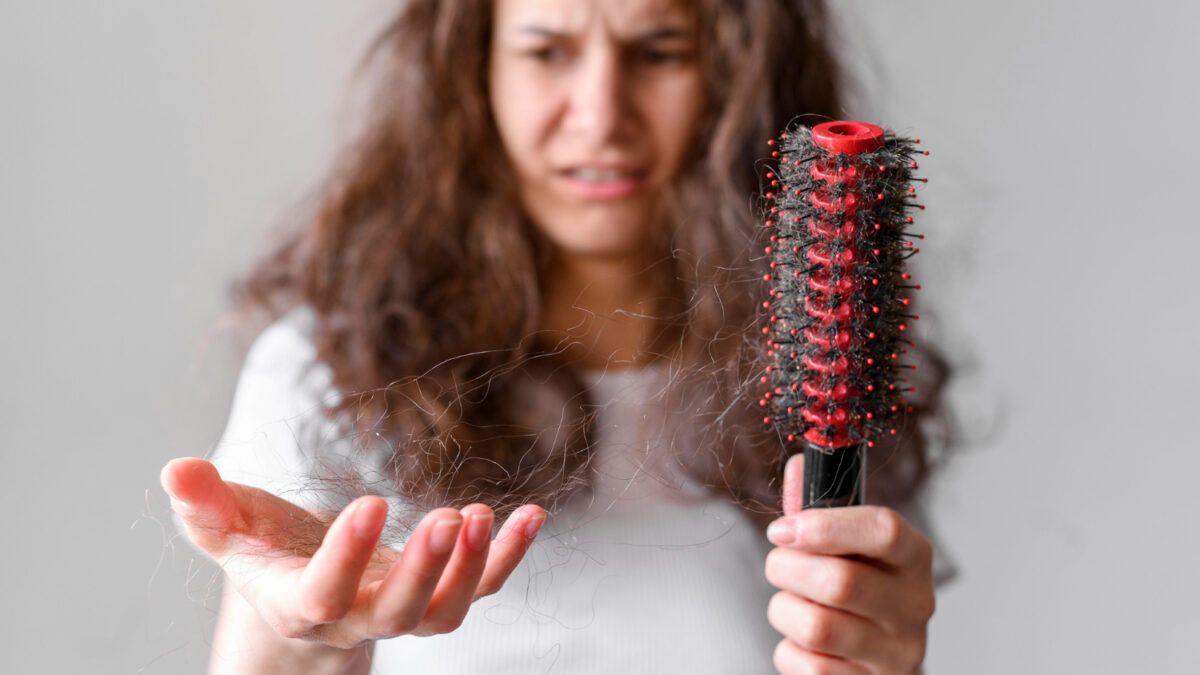Introduction:
Hair loss is a common concern for many individuals, and its causes can range from genetics and hormonal changes to poor lifestyle choices. While complete prevention may not always be possible, adopting certain habits and making lifestyle changes can significantly reduce the risk of hair loss. In this article, we will explore various strategies to promote healthy hair and minimize the chances of hair loss.
Nutritious Diet:
Eating a well-balanced diet rich in vitamins and minerals is crucial for maintaining healthy hair. Include foods high in iron, zinc, vitamins A and E, and omega-3 fatty acids. These nutrients support hair growth and strengthen the hair follicles.
Scalp Care:
Keep your scalp clean and healthy by washing your hair regularly. Use a mild shampoo that suits your hair type and avoid harsh chemicals that can damage the hair and scalp. Gently massage your scalp during washing to stimulate blood circulation.
Hydration:
Proper hydration is essential for overall health, including the health of your hair. Drink an adequate amount of water daily to keep your body and hair hydrated. Dehydration can weaken hair strands, making them more prone to breakage.
Avoid Excessive Heat and Styling:
Excessive use of heat styling tools like flat irons, curling irons, and blow dryers can damage the hair shaft and lead to hair loss. Limit the use of these tools and use heat protectant products when styling your hair.
Regular Exercise:
Physical activity improves blood circulation, including to the scalp. Engage in regular exercise to promote a healthy flow of nutrients to your hair follicles, helping to maintain strong and vibrant hair.
Manage Stress:
Chronic stress can contribute to hair loss. Practice stress-reducing activities such as meditation, yoga, or deep breathing exercises to keep stress levels in check. Adequate sleep is also crucial for overall well-being, including hair health.
Avoid Tight Hairstyles:
Tight hairstyles like ponytails, braids, and buns can cause stress on the hair shaft and lead to breakage. Opt for looser hairstyles to reduce tension on the hair follicles.
Quit Smoking:
Smoking has been linked to hair loss, as it can damage hair follicles and hinder blood flow to the scalp. Quitting smoking not only benefits your overall health but also promotes healthier hair.
Regular Trims:
Regular hair trims help prevent split ends and breakage. While trimming won’t directly stop hair loss, it can contribute to the overall health and appearance of your hair.
Consult a Professional:
If you notice significant hair loss or thinning, consult a dermatologist or a healthcare professional. They can identify the underlying causes and recommend appropriate treatments or interventions, such as topical medications, oral medications, or procedures like laser therapy.
Conclusion:
While some factors contributing to hair loss are beyond our control, adopting a healthy lifestyle and practicing good hair care can go a long way in preventing hair loss. Consistent efforts to maintain a nutritious diet, manage stress, and avoid damaging hair practices can contribute to healthier, stronger hair. If concerns persist, seeking professional advice is essential to address any underlying issues and tailor a specific plan for optimal hair health. Remember, a holistic approach to overall well-being reflects in the health and vitality of your hair.


